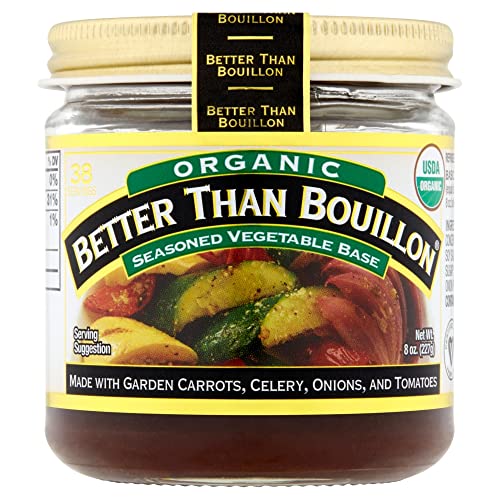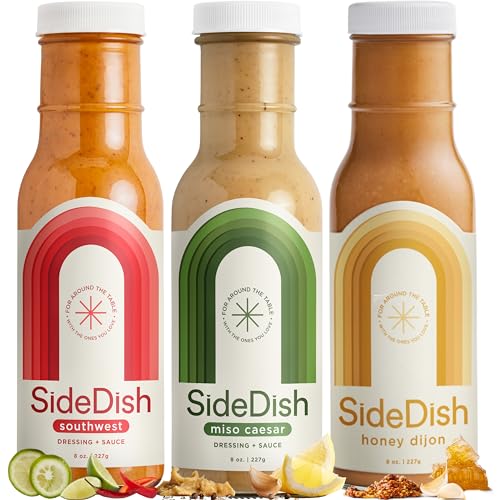Have you ever thought about cutting back on sugar, oil, and salt—or even eliminating them altogether? It sounds extreme at first, right? SOS (sugar, oil, and salt) are everywhere, and we’re conditioned to believe we can’t live without them. But simplifying your diet by focusing on whole, natural foods can transform your health, energy, and even your taste buds. If you’ve ever wondered whether ditching SOS is worth it, here’s a look at how it can change your life—and how you can get started without feeling deprived.
Why Ditch SOS?
You’ve probably heard that sugar, oil, and salt are okay in moderation—but what happens when they dominate your meals? These three ingredients are highly processed and can disrupt your body in ways you might not even realize.
Sugar: Hidden in everything from bread to sauces, sugar can lead to energy crashes, mood swings, and weight gain. Cutting it out helps stabilize your blood sugar, giving you steady energy all day.
Oil: Even “healthy” oils are calorie-dense and nutrient-poor, adding empty calories to your meals. Removing oil can help you feel fuller on fewer calories while improving your digestion.
Salt: Excess sodium can cause water retention, bloating, and even raise your blood pressure. Cutting back lets you truly taste the natural flavors of your food while supporting your heart health.
Simplifying your diet isn’t about deprivation—it’s about choosing foods that truly nourish your body.
The Transition: How to Get Started
Going SOS-free doesn’t happen overnight. At first, you might feel overwhelmed by how much sugar, oil, and salt are in the foods you regularly eat. Here are some practical steps to make the transition smoother:
Start Small: Don’t eliminate everything at once. Begin by reducing added sugar in your coffee or cutting out processed snacks.
Read Labels: Learn to spot hidden sugars, oils, and high sodium in packaged foods by reading labels closely.
Focus on Whole Foods: Fresh fruits, vegetables, whole grains, and legumes should become the core of your meals. These foods don’t need SOS to taste good—they’re naturally flavorful.
Experiment with Spices and Herbs: Replace salt with natural seasonings like garlic powder, smoked paprika, and fresh herbs like basil and cilantro.
Make Your Own Staples: Try making your own salad dressings, sauces, and even nut butters without added oil or sugar.
Quick Tip: If the idea of going completely SOS-free feels overwhelming, start with just one meal a day. Make it a no-SOS meal and notice how you feel afterward.
What You Can Expect: A Timeline of Changes
Simplifying your diet can lead to noticeable changes quickly. Here’s a general timeline of what you might experience after ditching SOS:
- 3 Days: Your body starts releasing excess water retention, reducing bloating. You might even notice clearer urine, a sign that your kidneys are working more efficiently without the extra salt.
- 7 Days: Energy levels begin to stabilize. No more afternoon crashes or sugary snack cravings. Blood pressure may also start trending lower as sodium intake decreases.
- 14 Days: Digestion improves noticeably. Without heavy oils weighing you down, you’ll feel lighter and more comfortable after meals.
- 21 Days: Taste buds begin to reset. Fruits and vegetables taste sweeter and more vibrant without added sugar or salt masking their natural flavors.
- 1 Month: Weight loss and clearer skin become noticeable for many people. Energy levels remain consistent, and cravings for SOS diminish significantly.
- 3 Months: The changes become undeniable. Many people lose weight naturally, have clearer skin, and feel sharper mentally. By this point, it’s not just a diet—it’s a lifestyle.
Real-Life Examples: Michelle and Chris’s Journey
Everyone’s experience with cutting out SOS looks a little different. For Michelle, the hardest part was giving up chocolate. Her sweet tooth made the first week feel like an uphill battle. But instead of giving up, she found healthier alternatives like frozen grapes and raw cacao smoothies. By the end of her first month, Michelle noticed her cravings had diminished, and she was starting to enjoy the natural sweetness of fruits more than ever before.
Chris, on the other hand, struggled with salty snacks. Chips and pretzels were his go-to, and the idea of giving them up felt daunting. During the first week, he replaced his usual snacks with roasted chickpeas seasoned with smoked paprika. By the third week, Chris realized his taste buds were adjusting—he no longer felt the need to add salt to his roasted veggies. After a month, Chris felt lighter, had more energy, and saw his blood pressure improve.
Both Michelle and Chris had unique challenges, but they stuck with it and saw incredible results over time. Their stories show that even small changes can lead to big transformations if you stay consistent.
- Mantova Organic Flavored Balsamic Vinegar of Modena, is certified USDA Organic and imported from Modena, Italy, home to …
- Full-bodied texture, rich color with an acidity level of 6%; Traditional balsamic vinegar flavor, tart with an underlyin…
- Reasonably priced for everyday use, compare taste and cooking quality to much more expensive balsamic vinegar
- From marinades, glazes and vegetables to soups, sides and slow cooker dishes, Organic Better Than Bouillon Seasoned Vege…
- Made by combining pureed carrots, celery, onions and tomato and aromatic seasonings.
- 1 teaspoon of Better Than Bouillon is equal to 1 bouillon cube.
- THE FINEST QUALITY IN SALT-FREE SPICES: We use only the very best in sustainably sourced, all natural ingredients, inspe…
- CRAFTED IN SMALL BATCHES: Our Salt-Free Gourmet Seasoning Collection is made using the best, so why not treat it like th…
- NO MSG, NO IRRADIATION NOT TREATED WITH ETO GAS: You don’t use MSG in your cooking, and neither do we. Same goes for ste…
- Salad Dressing Pack: Try our three original SideDish healthy salad dressing flavors with one bottle each of Southwest, M…
- Dairy and Sugar Free: This combo of avocado oil dressing sauces is dairy, gluten, and refined-sugar free. Use the simple…
- Healthy Lifestyle: Our Miso Caesar, Honey Dijon, and Southwest salad dressing pack provides delicious no seed oil option…
Easy Starter Plates
Simplifying your diet doesn’t mean sacrificing flavor or variety. Here are a few beginner-friendly meal ideas to get you started:
Breakfast: Oatmeal topped with fresh berries, chia seeds, and a sprinkle of cinnamon.
Lunch: A big salad with mixed greens, roasted sweet potatoes, chickpeas, and a no-oil tahini dressing.
Dinner: Steamed broccoli, quinoa, and a spicy lentil curry seasoned with turmeric, cumin, and smoked paprika.
Snacks: Sliced cucumbers and carrots with homemade hummus, or fresh fruit like apples and oranges.
Quick Tip: Batch-cook grains, beans, and roasted veggies at the start of the week to make no-SOS meals quick and easy to assemble.
Staying Motivated
It can be challenging to stick to a no-SOS diet, especially in social situations or when cravings hit. Here’s how to stay motivated:
Focus on How You Feel: Pay attention to the lightness, energy, and clarity you feel after eating whole, SOS-free meals. Use those positive changes to keep you going.
Keep It Fun: Experiment with new recipes and ingredients, like trying jackfruit for the first time or making oil-free baked falafel.
Celebrate Progress, Not Perfection: It’s okay to slip up. The goal isn’t perfection; it’s creating habits that make you feel good.
Final Thoughts: Simplifying Your Diet
Ditching sugar, oil, and salt might sound extreme at first, but it can be one of the best decisions you’ll ever make for your health and well-being. By focusing on whole, natural foods and getting creative in the kitchen, you can discover that food can be nourishing, delicious, and satisfying without relying on SOS. Start small. Swap one processed snack for fresh fruit, or experiment with a no-oil stir-fry. Each small step adds up, and before you know it, you’ll be enjoying meals that truly fuel your body and mind.




